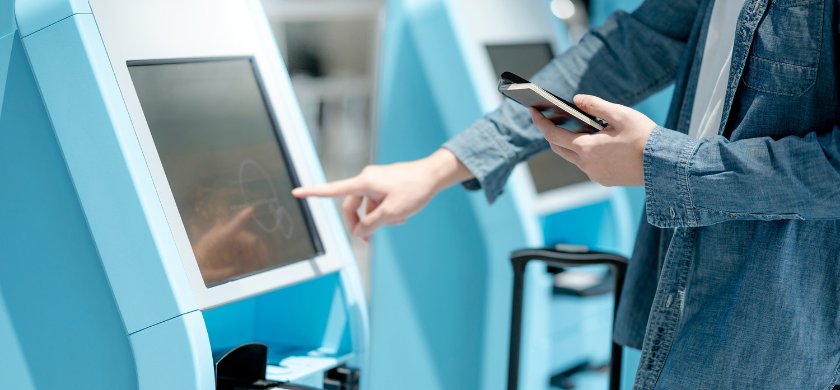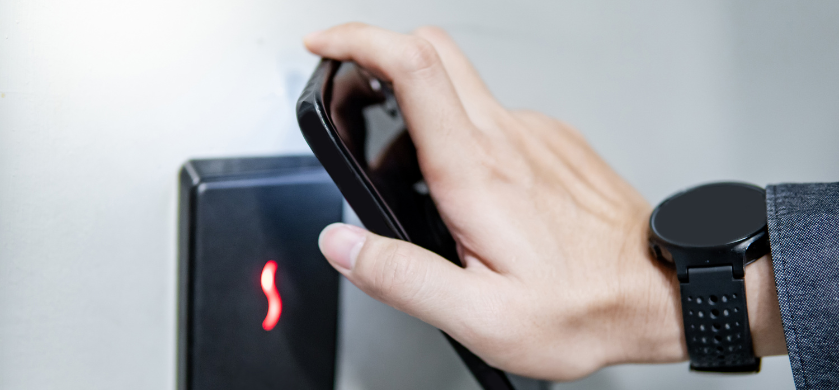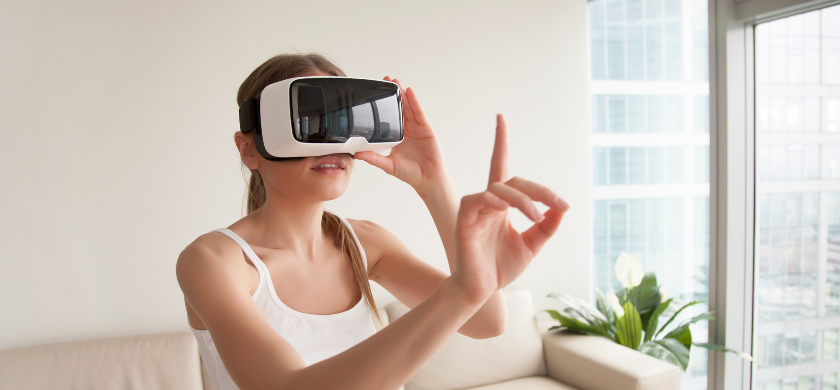Guest satisfaction is essential to keeping your hospitality business up and running. Simply put, if guests leave your hotel disappointed, they won’t come back, nor will they recommend their friends and family book a reservation. To keep guests satisfied, hoteliers need to stay up to date on the latest new technology trends in hospitality.
We’ve put together five such trends to boost guest satisfaction in your hotel. These trends can help boost your guests’ experience from booking to check-in, and even long after their stay at your hotel.
1. Seamless Facial Recognition Check-In

Hotel check-in has long been a maligned process for guests eager to start their vacation. Long lines and a clunky identification process can delay the relaxation your guests have planned for months. Facial recognition check-in kiosks can help to solve both of these issues.
These kiosks offer a streamlined guest check-in experience, leveraging biometric facial-scanning technology. A single facial scan can provide guests with both identification and payment, eliminating a lengthy (and oftentimes unnecessary) conversation at a standard hotel desk.
With a speedier process and multiple avenues to check-in, kiosks also immensely cut down check-in lines. Powering an appealing UI over several kiosks requires fast connectivity and a reliable network. Once implemented with a network to support these advancements, however, your guests will be grateful for the time they saved.
2. Biometric and Mobile Room Keys

Biometric scanning technology is also at the forefront of new developments in room keys. Both facial scanning and mobile devices offer smooth access to rooms for guests, sans a physical room key.
Like the previously mentioned check-in kiosks, facial scanning can identify guests and allow them to enter their rooms using their faces alone. This technology offers unprecedented access to rooms for guests, letting them in without having to lift a finger.
Mobile hotel room keys offer another sleek alternative to physical room keys. Nearly every hotel guest carries a smartphone with them everywhere they go. By connecting keys to their phones, hoteliers ensure their guests never lose their room keys again. Using Bluetooth or NFC technology, hoteliers can even implement mobile keys into existing room lock systems.
Either of these solutions can offer convenience over standard, easy-to-lose room keys. No-frills room access creates a more immersive hotel experience, thus improving guest satisfaction.
3. Diverse IoT Solutions For Hotel Rooms

Once guests enter their rooms, they expect cutting-edge amenities and services. In an evolving hospitality landscape, the possibilities for smart hotel rooms are nearly limitless. There are a few solutions, however, that raise guest satisfaction across the board.
Mobile interactivity serves as a massive boon to several in-room IoT solutions. Harnessing integrated devices, guests can use phone apps to customize aspects of their room, such as lighting and temperature. Backed by a responsive network, guests will be able to instantly change the makeup of their rooms from their phones. Travelers seeking rest gain customization from the comfort of their beds.
In-Room Entertainment offers an additional way to enhance the hotel room experience. Modern video-on-demand must encompass the content guests consume daily. Streaming services such as Netflix are now essential to guest experiences and need potent network connectivity to ensure smooth watching.
In-room televisions also offer extensive opportunities for digital signage. Digital signage shown on room television screens can advertise your hotel’s amenities, local attractions, and send customized greetings. Hoteliers can even merge streaming services with digital signage to build a comprehensive IRE platform for hotel rooms.
4. Immersive Virtual Reality Hotel Tours

VR hotels tours let guests explore your premises before committing to a booking. By giving potential visitors a preview of your amenities and services, guests grow excited about their trip. When you deliver on the promises of your virtual reality experience, guest satisfaction can increase.
To provide an engrossing virtual experience, hotels need a capable server to keep their website stable. Without a steady website, online virtual reality tours can be laggy, slow, and impractical to navigate. Once boosted by a dynamic network, however, these tours will excite guests.
5. Responsive AI Chatbots for Hotels

Hotel guests nearly always have some questions about their visit. Whether before, during, or after a stay at your hotel, implementing AI chatbots can help guests find the answers they need.
Chatbots can answer a wide variety of guest questions. Advanced artificial intelligence can interpret and understand written communication, responding as if they were a real person. Some advanced chatbots even leverage machine learning to grow their knowledge base over time.
By harnessing chatbots, your guests gain speedy access to hotel resources without the need for an in-person professional. Accessible communication saves guests time, increases their satisfaction, and saves hoteliers money.
Powerful Network Solutions for Hospitality Trends in Technology
Regardless of the trend, technological advances in the hospitality industry require reliable internet connectivity to maintain their efficiency. Hospitality Network specializes in building responsive networks for cutting-edge hotels, powering any and all of these trends and technologies.
Looking to boost your hotel’s connectivity? Request a consultation with our experienced team today.

